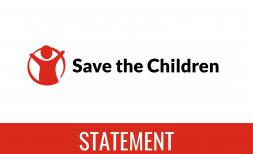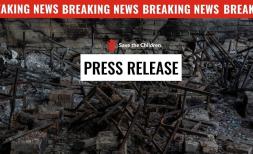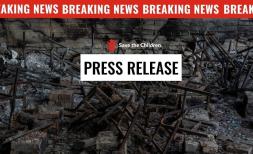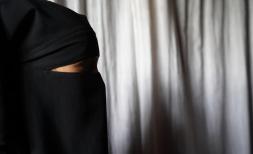Cabo Delgado: Displaced children tell of lost parents, lack of schooling, diseases, but also of hope in new report
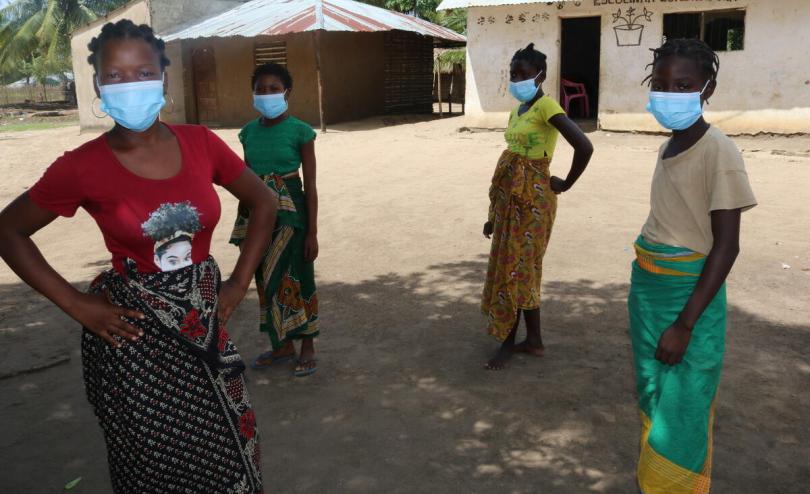
Lost birth certificates, missing parents, and a lack of schools are some of the most pressing fears raised by children who have been displaced by the violence in Cabo Delgado, Mozambique, according to a new report launched today by Save the Children.
In one of the most comprehensive analyses to date of life as a displaced child in Cabo Delgado, “The Voice of Children of Cabo Delgado” details the wide-ranging daily challenges they face[1]. Many of these children have witnessed horrific violence in a conflict that has displaced nearly a third of the province’s population, including at least 350,000 children.
Boys and girls told researchers that losing their identity papers was one of their biggest concerns. “I wish I could have my birth certificate and ID again. I lost them all,” a 16-year-old girl in Metuge district said. Children’s identity papers allow them to access public services, including education, healthcare, and social protection. At least 307,000 children and adults who have been displaced by the conflict have lost or do not have ID or birth certificates [2].
Others are concerned about family members they lost in the violence, with one 12-year old boy saying, “Some of us are not with our parents in this [transit] center and we are not in contact with them; we do not know where they are”. At least 2,424 children have been separated from their parents in the violence in Cabo Delgado, including 454 in the most recent violence in Pemba in April [3].
The lack of education opportunities was of particular concern to children, with challenges including a lack of schools and books. “There are schools here but some of us do not go, because we lack school materials and uniforms, and there are no secondary schools,” said a 16-year-old girl.
Health and exposure to sickness was also a concern to children. “The water from the tank is salty, so we drink water right from the water source, although we have been told to not drink it because of cholera,” one 17-year-old boy told researchers. Between January and March, a total of 3,334 cases of cholera and 179,967 cases of malaria were recorded in Cabo Delgado, with malaria registering an increase of 30.3% compared to the same period last year [4].
The displaced children identified some positive aspects of their current lives, including a strong hope of returning home, gratitude at receiving health care and food, and new friendships with children living in the host communities. Children from the host communities also showed sympathy towards the displaced families. One 14-year-old girl from a host community told researchers: “They know that we do play with them, we have helped them with food that our parents have given them at the center.”
Save the Children’s Country Director for Mozambique, Chance Briggs, said:
“This research tells us once again how important it is to listen to children. These kids are smart, they are resilient, they have hope, and when asked, know what’s best for them. It’s no surprise to hear displaced children fear for their education and their health. All of them have fled for their lives from a brutal conflict which has left so many dead or injured. The next step now is for donors and governments to listen to what these children are saying and act to protect them, support them, and help them survive and thrive despite this new challenge.
“Children are suffering disproportionately in this conflict and need special attention. We call on the donor community to ensure that funding for children’s needs are prioritized. This includes funds for protection, health, education, and to ensure children get the mental health support they need. Critically, we need donors to understand that education plays a role not only in providing children with skills for their future, but also gives kids a sense of ‘normalcy’, and helps protect them from things like early marriage. It shouldn’t be an optional extra.”
At least 800,000 people are now displaced in the provinces of Cabo Delgado, Nampula, Niassa, Sofala and Zambezia as a result of violence and insecurity in Cabo Delgado. At least 2,838 people are understood to have died in the conflict, including 1,406 civilians, although this number is only reported deaths and it’s expected the true number is much higher.
Save the Children and its partners are responding in support of displaced children and their families in Cabo Delgado. They have reached over 118,000 people, including over 72,000 children, that have been displaced by both the conflict and a cyclone that struck in 2019, with child protection, including family tracing and reunification, education and health services, food and livelihoods improvement, and water and sanitation programming. Save the Children has also been providing mental health and psychosocial support for separated and unaccompanied children, child victims of abuse, and those showing signs of profound traumatic impacts as the result of the conflict.
Notes to editors:
[1] Between 22 and 26 March 2021, Save the Children ran a consultation with children aged 12 -17 years about the situation in Cabo Delgado. The objective was to ensure children’s views were heard by community leaders, government, humanitarian agencies and donors,and that interventions designed to benefit these children were influenced by children’s concerns. The research took place with children in host communities or in transit and relocation centers in Marrupa, Chiure District; 25 de Junho, Metuge District; Nangua, Metuge District; and Corrane, Meconta District. In total, 184 children participated in the sessions, including 89 girls and 95 boys. Of these, 131 were displaced children and 53 were from the host community.
[2] Between November and December 2020, the Mozambique Civil Registration Service conducted an assessment of displaced people and counted 344,000 people in need of ID or birth certificates. While the government was able to issue 37,000 birth certificates between January and March 2021, including to 11,000 children, during this same period more people were also displaced, an unknown number of whom also lack papers.
[3] Until March 2021, 1,970 unaccompanied children were registered by the IOM in Cabo Delgado, with an additional 454 after the violence in Pemba in April 2021
[4] From 138,160 cases in 2020 to 179,967 cases in 2021
Find content at https://www.contenthubsavethechildren.org/Package/2O4C2SA8E7LD
Any questions or to arrange media interviews please contact:
Daphnee Cook, Daphnee.Cook@savethechildren.org;
Emily Wight, Emily.Wight@savethechildren.org;
Out of hours (BST/ UK): Media@savethechildren.org.uk +447831650409

